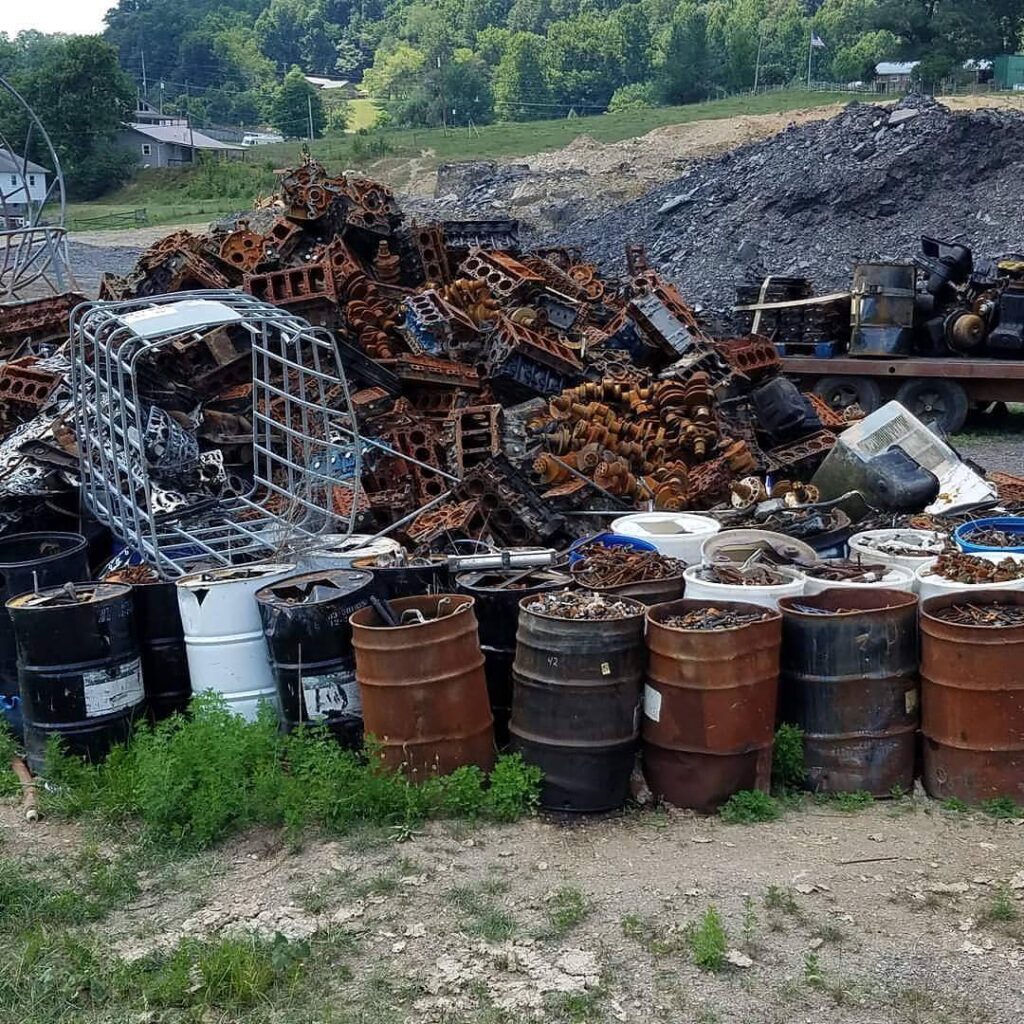EPA is terrorizing the diesel industry and destroying the environment.
The diesel industry has been under attack by so-called environmental groups and the U.S. Environmental Protection Agency for years. Since 2003, the EPA has circumvented all legitimate policy and law makers in the U.S. and dictated into law costly changes to restrict emissions on diesel engines. The US EPA is terrorizing the diesel industry.
These new policies have done more to hurt the environment than they have helped. In an effort to make exhaust emissions cleaner, the EPA forced auto makers to add Exhaust Gas Recirculation (EGR) systems to diesel engines in 2003. The EGR systems may have reduced emissions but, at he same time, fuel mileage was also reduced by about 60%. A diesel powered pickup truck used to get 22-24 MPG prior to the addition of the EGR systems. Those same trucks now get 13-16 MPG. What this means is, emissions were reduced but almost twice as much fuel was being burned. The environmental cost to pump, refine, and distribute twice as much fuel is disasterous to the environment.
How this did more harm than good
While the emissions outcome remained about the same overall, the tremendous environmental damage is ongoing. Just think of the added amount of pollution which is created by having to produce more oil. Then, on top of that, the oil has to be transported to a refinery and turned into diesel fuel. The air pollution created at the refinery added more pollution than the EGRs eliminated. The story doesn’t stop there, it gets much worse.
Diesel engines, at one time were well know to last 400,000 to 800,000 miles or more. The addition of EGR systems and their related failures, decreased the life of the engines. Since 2003, diesel engines in light to medium duty trucks started failing regularly at 150,000 to 300,000 miles. It doesn’t matter if it’s a Ford Powerstroke, a GMC Duramax or a Cummins diesel in a Ram truck, they are all the same.
Diesel engines are failing long before the rest of the truck, so re-manufacturers are building more engines than ever before. Asheville Engine, Inc. www.AshevilleEngine.com specializes in re-manufacturing Ford Powerstroke diesel engines. In 2021, Asheville engine re-manufactured roughly 480 Powerstroke diesel engines. These engines are in trucks the Ford F-250 and F-350 trucks that your neighbor drives. These are the trucks used by small business owners in their landscape, construction, excavating and other small businesses. Ford also put these diesel engines in F-450, F-550 and F-650 cab & Chassis trucks. Navistar also made a version of these engines for International. The engines are are in moving vans, school busses, delivery trucks, armored cars and other trucks.
The REAL damage being done
When remanufacturing an engine, some cast iron parts, such as engine blocks and cylinder heads cannot be reused. Of course, there are a lot of other parts (lifters, pushrods, crankshafts, camshafts, etc.) that are replaced with new parts. In 2021, Asheville Engine scrapped 215,000 pounds of steel. That does not even include all of the aluminum parts, such as pistons, that are scrapped when re-manufacturing an engine. The U.S. EPA has such strict air quality standards that recycling companies moved out of the U.S., relocating to China and India. Those countries have where NO emission standards at all. So what has to be done with all the scrap metal?

Turning scrap metal into something usable
The scrap metal is shipped to a port, loaded onto a mega cargo ship and sent to China. One mega ship emits the equivalent amount of air pollution as 50 million cars every day! That’s right, pollution is created by hauling the scrap metal by truck or train to a U.S. port. It is then sent on a ship to China that emits the same amount of CO2 as FIFTY MILLION cars. Once in China, it is transported to a recycling facility that has no control over it’s emissions. Air pollution does not stay in the city or the country where it was produced. It’s a worldwide problem.
The scrap metal is melted down and made into a new, usable material. That metal is then used by manufacturers to make new products (mostly in China). It is then sold to U.S. consumers after being transported a second time on a cargo ship. That cargo ship also emits the same amount of pollution as 50 million cars every day while on it’s 2 month journey back to the United States. Raw material is also shipped back to U.S. manufacturers to be made into finished goods.
Mining raw materials causes environmental damage
I shouldn’t even have to say it but mining for raw materials causes environmental damage. In order to make more engine blocks, cylinder heads and other parts, Iron Ore and other raw materials have to be mined. Mining itself causes damage but the ore also needs to be transported to a smelting plant. That requires diesel engines to move it by train and truck. And guess what! The EPA forced all of those plants out of the U.S., also. At a smelter, liquid metal is poured into molds to make cast iron and then shipped back to the US.
Guess what? The EPA forced all of those companies out of the U.S. and into Mexico and other countries where the air quality controls are not as stringent as those in the U.S. The result is all of that polluted air circumventing the globe, even the air in the United States.
It’s gotten much worse
Since the EPA has been allowed to dictate policy, they implemented even tougher restrictions in 2008. The addition of Diesel Exhaust Fluid (DEF) systems on diesel engines has taken it to a much higher level. The problems that the DEF systems have added have caused diesel engines to be even less reliable. Diesel Exhaust Fluid is urea and is very caustic to metals. The DEF systems are unreliable and fail quite regularly. Those system failures can also cause engine failure. Failures occur at a higher rate in occasional use vehicles like farm trucks, trucks used to tow the family camper. Failures are also very common in vehicles that sit and idle for long periods of time. Those would include delivery trucks, ambulances, armored cars and trucks used for power-line construction and repair.
Because DEF fluid is caustic to metal, it is packaged in plastic jugs. If you haven’t noticed them, just look for them inside the building the next time that you stop for gas. Yes, PLASTIC jugs. Plastic is made from petroleum/oil. They are made in China, shipped to the U.S. on those same dirty ships and filled with horse piss. They are then transported across the country to convenience stores, gas stations and truck stops. DEF jugs are then thrown in our landfills. They can also be recycled, going through the same transportation process as the steel that was recycled.
Even bigger headaches
As mentioned earlier, DEF systems can, and do cause premature engine failures but that’s not the worst of it. All diesel trucks produced in the U.S. have DEF systems on them. DEF components fail at an alarming rate and are very expensive to replace. Those expenses are passed on to the consumer by freight companies, and contractors. Even the guy who cuts your grass or plows your snow passes that expense along.
In the summer of 2022, thousands of RV enthusiasts were grounded because of DEF head failures on their diesel motor homes. Cummins, the diesel engines in most RVs, did not have enough replacement DEF heads to handle the problem. The same systems that were failing on RVs were also failing on Semi-trucks which are used to haul freight. The fake news media were reporting that there was a “shortage of truck drivers”. There were plenty of drivers…who’s trucks were broke down.
66 million people go camping, but there are 1 million who RV full time, living in their RV. Many of those full timers sat for 3 to 6 months waiting to get the parts to fix their RV. The cost to replace the EGR cooler on an RV is $3,000. To replace the DEF system, it’s upwards of $6,000. It’s slightly less expensive to do the replacement on a pickup truck but it’s not at all cheap.
Where are we headed?
Until Congress determines how big the problem is and starts to put restrictions on the EPA, things will only get worse.
